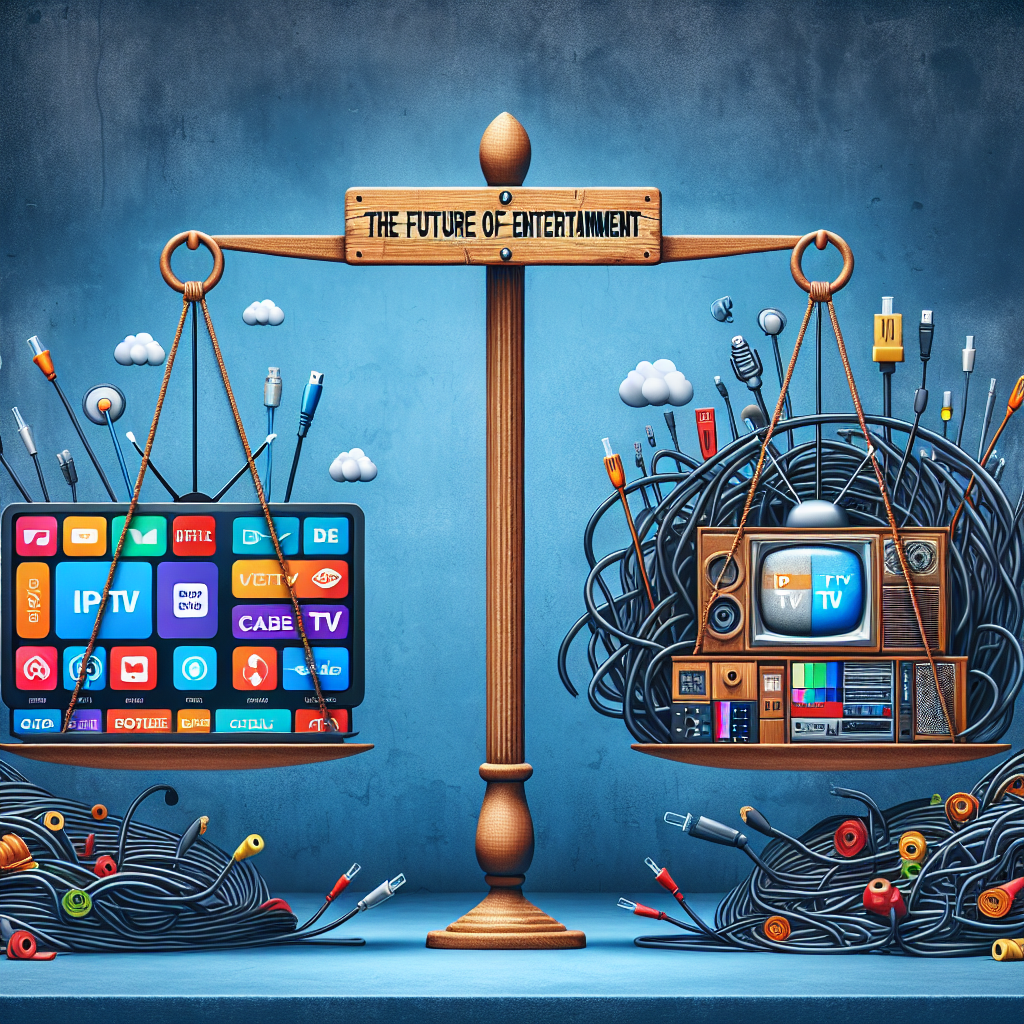TREX TV
Exploring IPTV vs. Cable TV: The Future of Entertainment
===
As consumers navigate an increasingly complex landscape of entertainment options, the choice between IPTV and cable TV has never been more critical. Many viewers find themselves frustrated with high costs, limited channel selections, and the inconvenience of traditional broadcasting methods. The future of entertainment hinges on understanding these two distinct platforms, as they not only offer vastly different viewing experiences but also reflect the ongoing evolution of technology in our lives. This exploration of "IPTV vs. Cable TV" will shed light on the defining characteristics of each, empowering you to make informed choices tailored to your entertainment needs.
Understanding the Key Differences Between IPTV and Cable TV
The primary distinction between IPTV (Internet Protocol Television) and cable TV lies in how content is delivered to the viewer. IPTV utilizes high-speed internet connections to stream content directly to a device, enabling on-demand viewing, time-shifted content, and personalized interfaces. In contrast, cable TV relies on traditional coaxial cables and satellite systems, often resulting in a fixed package of channels that lacks flexibility. This fundamental difference impacts not only the content available but also the quality of the viewing experience, with IPTV generally offering superior picture quality and interactive features.
Another significant factor that sets IPTV apart from cable TV is accessibility and portability. IPTV services can be accessed on various devices—smartphones, tablets, smart TVs, or computer browsers—affording viewers the flexibility to watch their favorite shows from virtually anywhere with an internet connection. In contrast, traditional cable TV typically requires a set-top box and remains tethered to a specific location, making it cumbersome for those who wish to consume media while on the go. This inherent mobility of IPTV caters to the modern viewer’s lifestyle, who increasingly seeks entertainment solutions that fit into their dynamic schedules.
Moreover, the cost structure of these services adds another layer of contrast. Cable TV providers often bundle channels into packages, which can lead to inflated costs for consumers who may not use all the channels offered. Conversely, IPTV often presents a more granular pricing model where viewers can select only the channels or packages they wish to subscribe to, ultimately leading to better financial control over entertainment expenses. This level of customization resonates deeply with viewers who are increasingly budget-conscious and value-driven, making IPTV a more appealing option in terms of cost-effectiveness and control.
The Impact of Technology on the Future of Entertainment Choices
The rapid advancement of technology plays a pivotal role in shaping the future of entertainment choices, particularly in the context of IPTV and cable TV. As internet speeds continue to increase, the reliability and quality of IPTV streaming improve significantly, making it a viable alternative to traditional cable services. With the advent of 5G technology, the potential for seamless streaming on a multitude of devices expands even further, paving the way for innovative viewing experiences that cater to diverse consumer preferences. This trend hints at a future where IPTV could dominate the entertainment landscape, as it melds convenience with cutting-edge technology.
Machine learning and artificial intelligence are also revolutionizing content delivery. IPTV platforms now harness these technologies to analyze user behavior, allowing for personalized recommendations that enhance the viewer’s experience. By understanding viewing habits, preferences, and even mood, IPTV can suggest relevant content that traditional cable simply cannot match. This shift towards personalization creates a more engaging and satisfying viewing experience, making it increasingly difficult for cable TV providers to compete in this evolving market.
Furthermore, the rise of streaming platforms and over-the-top (OTT) services has disrupted traditional media consumption patterns. With numerous options available, viewers can create their unique entertainment ecosystems tailored to individual tastes. This decentralization of content consumption inherently favors IPTV, as it allows for easier integration with popular streaming platforms, fostering an environment where viewers can curate their content seamlessly. As this trend continues, the once-steadfast grip of cable TV on the market is likely to weaken, ultimately leading to a transformative shift in how entertainment is consumed and managed.
===
In conclusion, the debate between IPTV and cable TV encapsulates more than just a choice in viewing platforms; it embodies a significant shift in the way we engage with entertainment. With technology advancing at an unprecedented pace and consumer preferences evolving, IPTV not only offers more flexibility and personalization but also sets the stage for the future of media consumption. As viewers continue to seek more tailored, convenient experiences, the dominance of IPTV will likely continue to rise. By understanding these nuanced differences and implications, consumers can make informed decisions that align with their viewing habits and financial considerations. Exploring these options further will empower you to navigate the future of entertainment with confidence, ensuring you choose the solution that best suits your lifestyle.
Understanding IPTV in Canada: Options, Benefits, and TrendsUnderstanding IPTV: A Comprehensive Beginner’s GuideEnhance Your Viewing: Top 10 IPTV Features to ExploreRelevant LinkRelevant LinkRelevant Link
